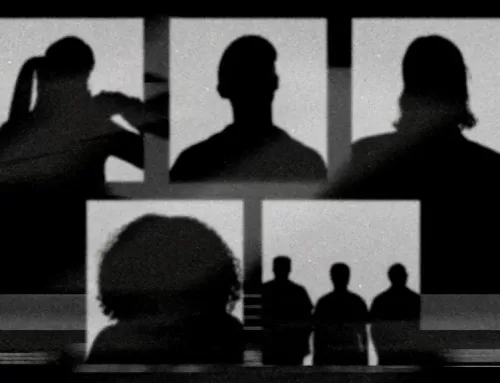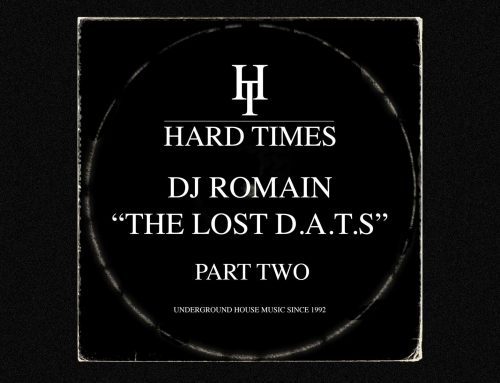
In this extract from DJ Paulette’s memoir, out later this month, she confronts the discrimination she and other women faced—and celebrates some of the scene’s unsung heroines.
I have long been aware that there is a marked difference in the way that Black women are allowed to occupy space in the workplace, and how white women with less experience can earn more and scale the ladder more quickly, and the overarching privilege that most white men have, at every level, of comfortably being there and getting everywhere with the least amount of effort, encouraged, allowed and expected to achieve, and promoted easily when they do. The stigma of difference and the assumption that the simplest of tasks—and life—is harder for a woman perfumes everything we do. To be equal we must do more.
No matter what nationality we are or which country we reside in—no matter how young, how old, or how different we are as people or how varied we are musically, as DJs we face the same, tired questions concerning the gendered challenge of being capable of doing anything at all. Intrigued by the idiocy of this, I gathered some friends together to dissect and examine the issues, stereotypical attitudes, and the standard female DJ interview questions.
The most asked (and most detested) question is, “is it hard being a female DJ?” This is like a red rag to a bull. In the beginning, DJing wasn’t a career ambition or goal for anyone (men included) so we women never saw our gender, race or sexuality as compromising it any further. It’s a job that we all naturally fell into through our passion for music, the love of people and clubbing and the obsession (perhaps nerdiness!) of record collecting. We honed our craft as everyone else did, learning on the job, practising at home, buying our own equipment and improving over time. We didn’t do it to be famous or to get more followers and likes. We did it for love. We did it for the party. Marcia Carr remembers her start:

From the Hacienda to Homoelectric, DJ Paulette’s career spans over three decades and three countries.
“I’d be the one farsing with the radiogram—the one who they would call on for family functions. I was at college, 16/17 years old, and I always got called on to play the music. One day I thought, ‘I can do what those guys are doing.’ I’d been DJ’ing at college, then I found myself playing at Busby’s.”
A violinist is a violinist, a pianist is a pianist, a guitarist is a guitarist, a musician is a musician. When people ask me what I do for a living, I say, “I’m a DJ.” I don’t feel I need to make any other distinction. Gender makes no difference to the way we do or should classify this job. Technically DJing doesn’t require any skills that are specific to either sex when they perform. We do the same job and use the same equipment and materials. There’s no heavy lifting or brute force required (apart from lugging boxes of vinyl around) yet it’s segregated, and remunerated, as if there is. The job has been gendered in speech, flyers, interviews and pay, and this perpetuates the “novelty” aspect which over time has become entrenched.
No matter what gender we are or choose to be, we inherit 23 chromosomes from each parent, so by rights we should all be equal. Wrong. It was 2019 when Anz enlisted me for a chat with Tash LC on Red Bull’s Normal Not Novelty workshop for women and nonbinary artists in Leeds. The prefix DJ’ette / DJane / SheJ / Female DJ as a marketing category accentuates our otherness and makes the profession harder to equalise, while scarcity and low visibility puts men higher in the booking and lineup order. This summer I was approached by a woman whose boyfriend (the promoter) had booked me for their party in Manchester. She was shocked and intrigued to hear me play because in the years of their running that party they had never booked a female DJ. The education and ministry continue.
We are the pioneers, the foot soldiers who struck out alone into uncharted territory, keeping a few steps ahead of the rest, striding over rough terrain, inadvertently or intentionally clearing the path for others to follow. We founded a new culture, and a new way of life, then shared our love, vision, desire and the obsession that drives us generously with the world. With no one like us who we could model ourselves on, we became the influencers and influences of the future.

One of two women to have a residency at the Hacienda, Paulette went on to hold residencies at Heaven and Ministry of Sound, before successful stints in Paris and Ibiza.
But pioneers rarely get the recognition they deserve. Marcia Carr reflects: “For us [Black women] coming through and having zero influences—it was hard to become something that you can’t see.” Among my interviewees, the lack of female role models (specifically for DJs but also in management and booking) is almost unanimously voiced but Kath McDermott cites Manchester in the ’90s as an exception. Here, her experience of living in the Hulme Crescents and working in Vinyl Exchange in Manchester city centre gave her a vital connection to the Manchester DJ community. She speaks confidently of DJ Michelle, of starting at Flesh as a duo with her then partner Lin and of later DJing at Paradise Factory with Phillipa Jarman. During the early Flesh era, she cites Nadine, Paula and Tabs as DJs who were also on the scene. To Kath, “DJing didn’t feel unusual as there were a lot of really great women in Manchester and it felt like we were all coming through at the same time.” Happy as I am to share that more women came through in the early ’90s, none were people of colour. It would be 2000 before Claud Cunningham and her Black Angel party and community arrived in Manchester to inspire the LGBTQIA+ scene.
Around the same time, Dulcie Danger remembers following a DJ in Brighton called Sarah Chapman: “She was literally my idol,” she says. “I’d go everywhere she was playing. I used to carry her record box. Every now and then she’d let me have a little go. She was pivotal in Brighton.” DJ Colleen ‘Cosmo’ Murphy studied sound and radio at NYU where Lynn McVey oversaw the radio station. She sponsored Colleen for a scholarship, kept an eye on her and would take her out to lunch. She was her only female mentor. Colleen also lists a post-1999 roll call of significant players including Jeannie Hopper (Liquid Sound Lounge) and Jennifer—who, alongside her, were the only women to play at François K and John Davis’s Sunday session Body and Soul. Then there was Belinda the hip-hop DJ, Jackie Christie who played harder house and reigned supreme on the gay scene, and Chris Spirit (who played with Junior Vasquez). For Lakuti, “honour goes to Judy at fabric who was always really supportive.” None of whom feature enough in the history books that matter.

“I have long been aware that there is a marked difference in the way that Black women are allowed to occupy space in the workplace.”
Welcome to the Club – The Life and Lessons of a Black Woman DJ is out on January 23rd, 2024, through Manchester University Press.
Revisit DJ Paulette’s letter, Lose Yourself to Dance, for our 21st anniversary book, Sacred Spaces.




![Carl Cox says his Ibiza residency at [UNVRS] will be a “whole new world” (DJ Mag)](https://www.myhouseradio.fm/wp-content/uploads/2025/04/carl-cox-1.jpg-500x383.webp)
Leave A Comment
You must be logged in to post a comment.